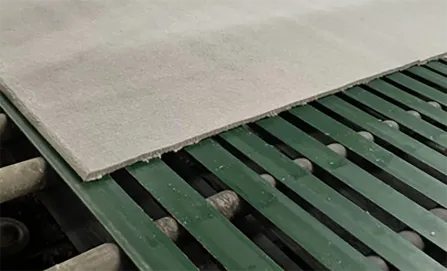Feb . 18, 2025 06:01 Back to list
pvc vs gypsum ceiling
Choosing the right material for your ceiling is a crucial decision that impacts the aesthetics, durability, and functionality of a space. PVC (Polyvinyl Chloride) and Gypsum are two popular options, each offering distinct advantages and considerations. Understanding their characteristics can help make an informed choice for residential or commercial projects.
Nevertheless, gypsum ceilings come with their own challenges. They are more susceptible to moisture damage compared to PVC, necessitating a dry environment to prevent mold and mildew. Installation is also more labor-intensive, often requiring skilled professionals to ensure seamless finishing and integrity. Regular maintenance is essential to address potential issues like cracks or water damage. Balancing Act Choosing Between PVC and Gypsum The decision between PVC and Gypsum ceilings largely depends on the specific needs and constraints of the space. Here are some important comparisons to consider 1. Environment Suitability PVC is preferable for moisture-prone areas, whereas gypsum excels in soundproofing and aesthetics in dry settings. 2. Installation and Maintenance PVC offers ease of installation and low maintenance, making it cost-effective in the short term. Conversely, gypsum requires a more involved installation but offers a premium finish and excellent longevity. 3. Safety and Environmental Impact Gypsum is more eco-friendly and offers better fire resistance, while PVC must be carefully assessed for quality and environmental impact. 4. Cost Considerations Initially, PVC is often more affordable, but gypsum provides greater long-term value with its durability and performance in noise reduction. 5. Aesthetic Versatility Both materials offer diverse aesthetic appeals. PVC is great for modern, sleek designs, while gypsum can accommodate classic, elegant looks with customizable finishes. Analyzing these factors in relation to your specific project can help determine which material aligns best with your requirements. Consulting with architects or interior designers can also provide additional insights tailored to your unique circumstances. Ultimately, both PVC and Gypsum offer significant benefits, and the right choice will reflect a balance of functionality, aesthetic preference, and environmental considerations.


Nevertheless, gypsum ceilings come with their own challenges. They are more susceptible to moisture damage compared to PVC, necessitating a dry environment to prevent mold and mildew. Installation is also more labor-intensive, often requiring skilled professionals to ensure seamless finishing and integrity. Regular maintenance is essential to address potential issues like cracks or water damage. Balancing Act Choosing Between PVC and Gypsum The decision between PVC and Gypsum ceilings largely depends on the specific needs and constraints of the space. Here are some important comparisons to consider 1. Environment Suitability PVC is preferable for moisture-prone areas, whereas gypsum excels in soundproofing and aesthetics in dry settings. 2. Installation and Maintenance PVC offers ease of installation and low maintenance, making it cost-effective in the short term. Conversely, gypsum requires a more involved installation but offers a premium finish and excellent longevity. 3. Safety and Environmental Impact Gypsum is more eco-friendly and offers better fire resistance, while PVC must be carefully assessed for quality and environmental impact. 4. Cost Considerations Initially, PVC is often more affordable, but gypsum provides greater long-term value with its durability and performance in noise reduction. 5. Aesthetic Versatility Both materials offer diverse aesthetic appeals. PVC is great for modern, sleek designs, while gypsum can accommodate classic, elegant looks with customizable finishes. Analyzing these factors in relation to your specific project can help determine which material aligns best with your requirements. Consulting with architects or interior designers can also provide additional insights tailored to your unique circumstances. Ultimately, both PVC and Gypsum offer significant benefits, and the right choice will reflect a balance of functionality, aesthetic preference, and environmental considerations.
Next:
Latest news
-
Quality Ceiling Trap Doors & Access Panels | Easy & Secure AccessNewsAug.30,2025
-
Durable Ceiling T Grid Systems | Easy InstallationNewsAug.29,2025
-
PVC Gypsum Ceiling: Durable, Laminated Tiles for Modern SpacesNewsAug.28,2025
-
Pvc Gypsum Ceiling Is DurableNewsAug.21,2025
-
Mineral Fiber Board Is DurableNewsAug.21,2025
-
Ceiling Tile Clip Reusable DesignNewsAug.21,2025







